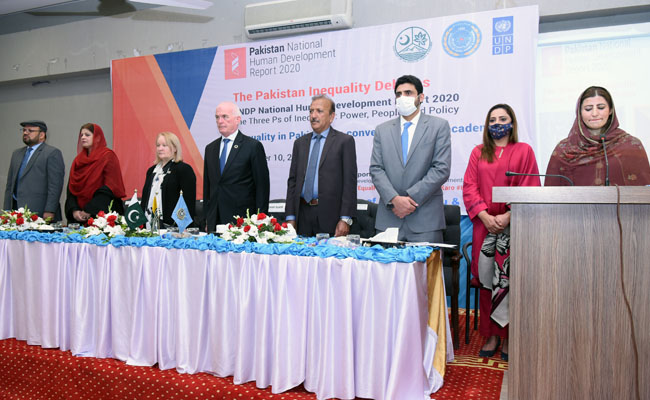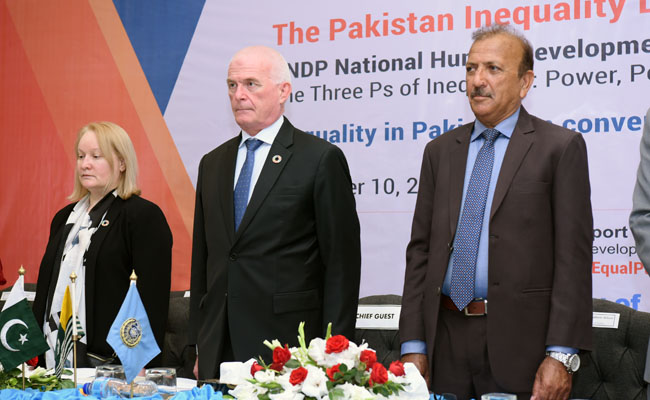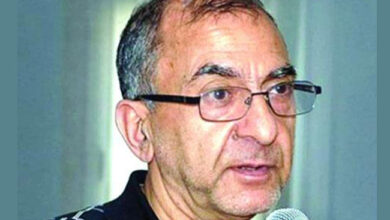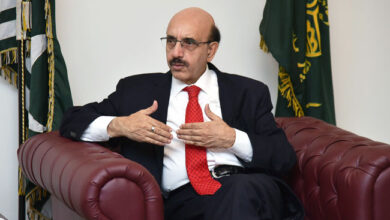No progress without inclusive development on bases equal opportunities for all: Speakers

MUZAFFARABAD, November 11: Addressing at a seminar organized by The University Azad Jammu and Kashmir, academics, economists, policymakers, and social scientists termed the report on inequality released by the United Nations Development Program (UNDP) as a roadmap for inclusive human development and equitable distribution of resources in Pakistan and its various geographical regions including Azad Jammu and Kashmir (AJK) and Gilgit-Baltistan.
Vice-Chancellor of Azad Jammu and Kashmir University Prof. Dr. Muhammad Kaleem Abbasi, Resident Representative of UNDP Pakistan Knut Ostby, AJK Secretary Information, Ms. Midhat Shehzad, Former Minister for Social Welfare Ms. Farzana Yaqub, Ghulam Ishaq Khan, Syed Ali Hussnain Gillani, and others addressed the event.
The event was attended by the Deans, Principal Officers, Heads of Departments, and a large number of students and teachers including the Registrar of the University Prof. Dr. Ayesha.
Speaking on the occasion, the Vice-Chancellor of the UAJK, Prof. Dr. Muhammad Kaleem Abbasi praised the Pakistan National Human Development Report 2020 for identifying three Ps (Power, People, and Policy) as the sources of inequality.
He however said that the effects of these are not the same across the region. He said that some of the human development indicators in AJK are much better than the indicators of provinces of Pakistan. Among these indicators, literacy rate, enrolment rate, life expectancy at birth, death per 1000 individuals, per capita income, and human development index are the indicators in which the performance of AJK is better than the average performance of Pakistan.
Emphasizing that education for all is the key to further reducing the inequality in society, the Vice-Chancellor said that the University of Azad Jammu and Kashmir has adequately addressed the issue of gender disparity in education as at present there are 50.73% female and 49.27% male student enrolled in the university.

In addition, he said last year we have successfully facilitated 2,500 students by providing them need-based Ehesas Scholarships to make university education more affordable for them. Similarly, the proportion of student enrolment from rural areas is significantly higher in AJK, he added.
Speaking on the occasion, Resident Representative of UNDP Pakistan, Mr. Knut Ostiby said that the high literacy rate in Azad Kashmir and the ability and resilience of the people to deal with various natural calamities was commendable. He said that obstacles to human development can be removed not by force but by adopting better policies.
Azad Kashmir Information Secretary Midhat Shehzad in his address termed the UNDP report as a masterpiece and said that we have to address the problems of inequalities to achieve the goal of inclusive and sustainable development for all citizens of the country.
Former Minister of Azad Kashmir Ms. Farzana Yaqub said that if we want to achieve the desired destination of development, we have to abandon the outdated and tried and tested tracks and adopt new paths that can lead us to reach our destination.
Azad Kashmir is a small region in terms of area and population where 70% of women are educated but despite being educated they do not have employment opportunities, which is a great tragedy.
Leading educationist and economist Dr. Muhammad Jameel in his address said that the long dream of development and prosperity in Pakistan cannot be realized as long as all people living in this country are provided equal opportunities for development. He said that we have made some progress in the field of education but due to the class system of education we have not been able to achieve the results that should have been achieved.





